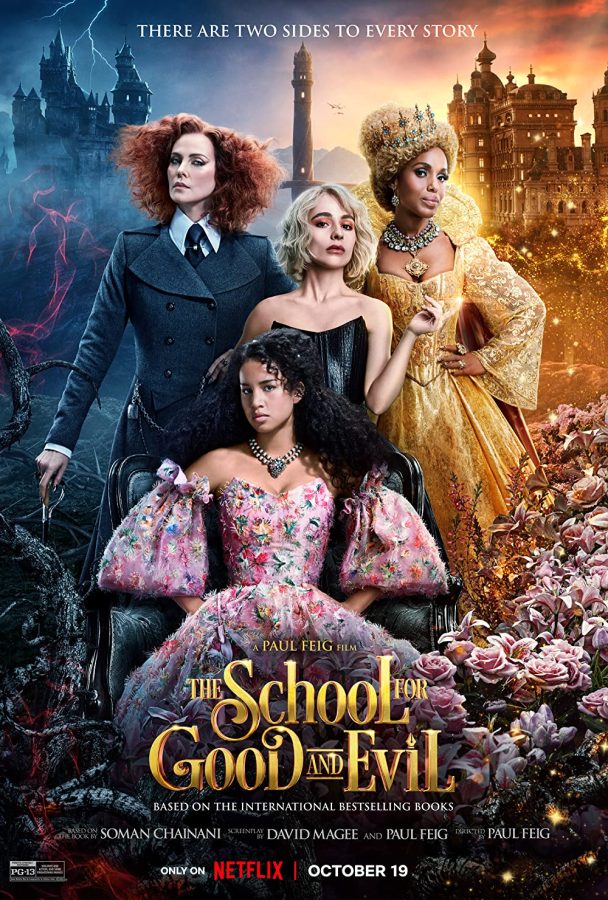The School for Antisemitism and Queerbaiting
“The School for Good and Evil,” directed by Paul Feig, follows Agatha and Sophie as they are dropped in a magical school called, as the title suggests, The School for Good and Evil. Beautiful Sophie is dropped in The School for Evil while her best friend Agatha, The School for Good. Both claim to be in the wrong place, Sophie thinks she should be in the lovely School for Good, and Agatha that they should be returned to their home, Gavaldon. The movie ends with Sophie turning evil before Agatha can change her mind and they defeat the evil school master who had been pulling their strings from the very beginning.
In the movie one of the main characters, Sophie of Gavaldon, slowly turns evil. As she does, she gets uglier, something that throughout the movie is often attributed to evilness. Her hair thins, she ages, grows moles and her nose enlarges and becomes hooked. The issue that someone who is ugly is inherently evil is problematic in its own right. However, her evil persona is a blatant caricature of a Jewish person; the main feature behind this being her nose, which is an antisemitic feature indicating that she has gone truly evil. The hooked nose as a feature of ‘evilness’ first began in antisemitic and Nazi propaganda from the 1930s. This movie, which deals in myths and fairy tales, presents a decidedly evil character in a historically antisemitic way and expects the audience to go with it because “hey, it’s a kids movie.” The fairytale genre has historically used antisemetic features to denote villains in movies and many fans of said genre had hoped that this movie – based in fairytales – would have taken that into consideration in 2022.
Not only is the movie antisemitic, it is also a classic example of queerbaiting. Agatha and Sophie, the movie’s protagonist and antagonist, are depicted as having a closer than average friendship, going so far as to have a true love’s kiss on the lips. This clearly sets up a relationship, conveniently ignoring the fact that in later books it is revealed that they are sisters. Although it is claimed that true love’s kiss can be platonic and between friends, it is also calling on a history of true love’s kiss being purely romantic and goes so far as to heal Sophie from a stab wound and fix the castles.
Even without the blatant antisemitism and queerbaiting, it is unfortunately not a very good movie. The story does not follow the book very closely, especially with regards to Sophie who in the books is clearly evil, choosing her actions because she believes it will land her in the Good school. The beginning of the movie moves slowly, leaving the end feeling cramped and like too much needs to be fit into 147 excruciating minutes.



